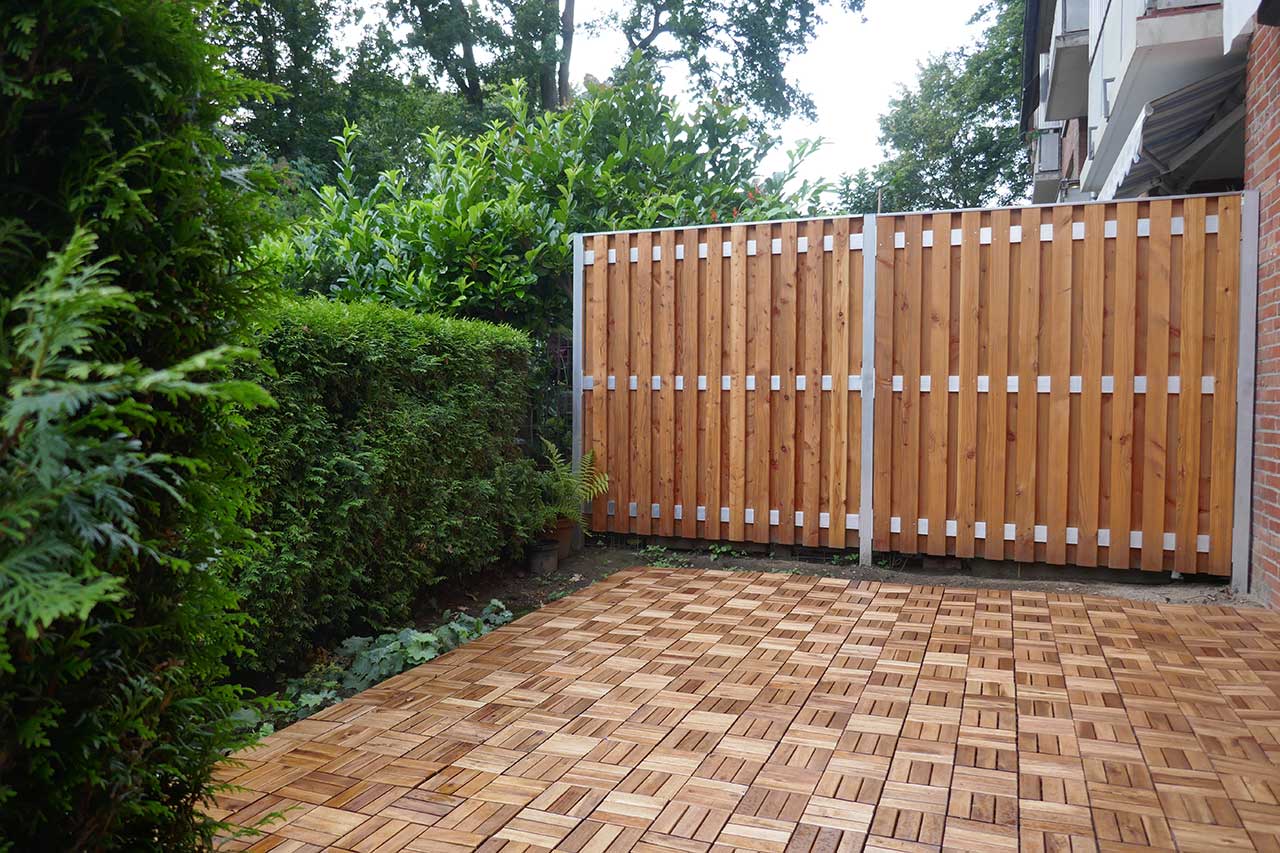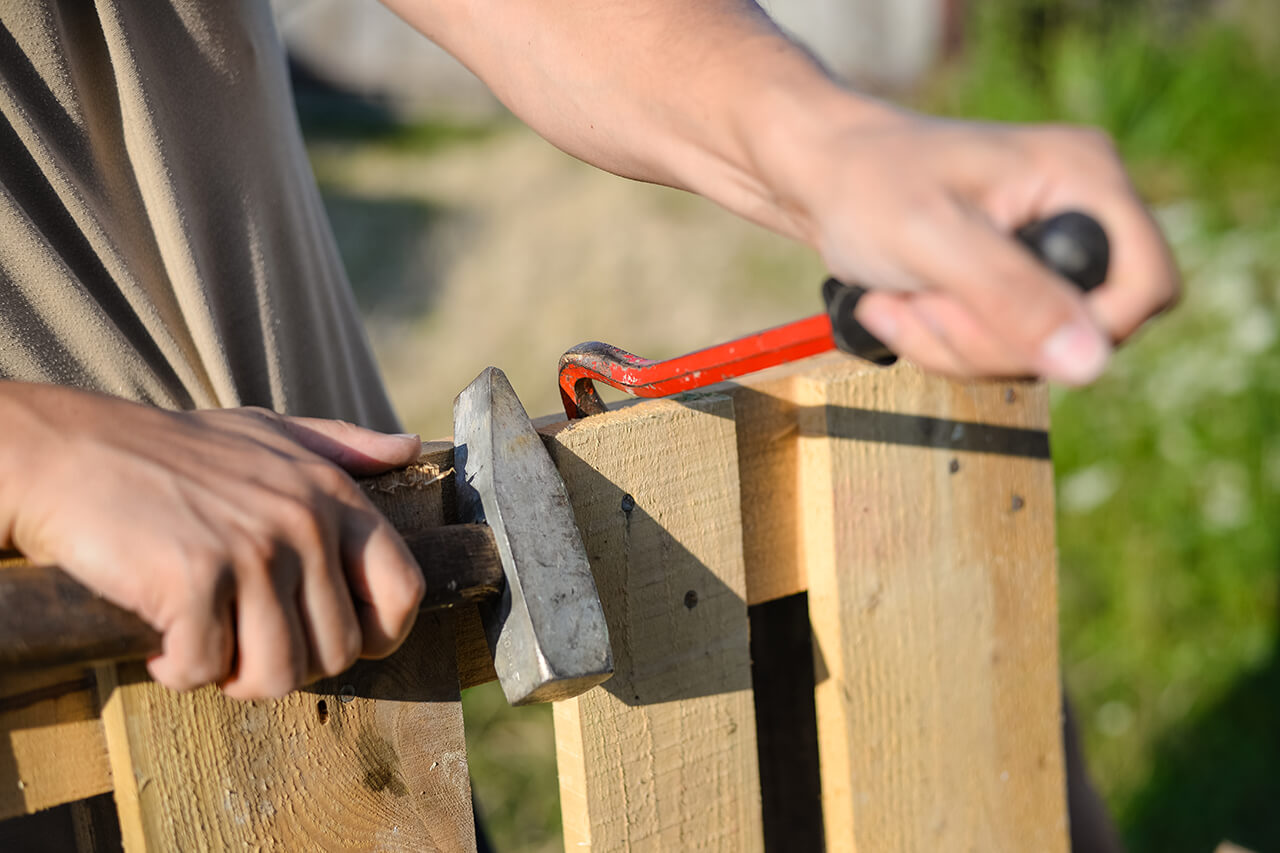How Much Does a Wrought Iron Fence Installation Cost in 2025?
This project can cost anywhere from $460 to $10,400, so take a look at what could affect this price and get a quote from a pro.


Wrought iron fencing costs range from $25 to $35 per linear foot.
Fence length, iron quality, gauge, and spacing are major cost factors.
The standard height of a wrought iron fence is four feet (48 inches), but you can adjust it based on your home's needs.
Plain black iron is the least expensive variety, but galvanized iron protects better against rust.
A well-maintained wrought iron fence can last 50 to 100 years.
This article was updated using automation technology and thoroughly reviewed for accuracy by HomeAdvisor Editor Ryan Noonan.
On average, homeowners spend $3,170 on installation, with most paying between $1,419 and $5,158, or $25 to $35 per linear foot. Factors like fence length, height, iron quality, and design complexity can affect the overall cost.
Installing a wrought iron fence adds timeless elegance and security to your home. With proper care every two to three years, your wrought iron fence can last 50 to 100 years. Hiring a professional wrought iron fence installer ensures a high-quality installation that enhances your property's curb appeal.
Wrought Iron Fence Cost Factors
When planning your wrought iron fence installation, several factors will influence the cost. Understanding these factors can help you budget effectively and make informed decisions for your project.
Fence Height and Length
The most common height for a wrought iron fence is four feet (48 inches), which is tall enough to deter most dogs and people from climbing or jumping over it. Shorter garden fences may only be three feet (36 inches) tall, while security fences can reach as high as eight feet. The taller the fence, the more iron is required and the more the wrought iron fence costs.
Long fences encircling large yards cost more than shorter fences. The average cost is usually $25 to $35 per linear foot for materials alone, not including fence installation costs. Taller and longer fences also require more labor to install.
| Linear Feet | Average Cost Range |
|---|---|
| 30 | $720–$1,020 |
| 70 | $1,680–$2,380 |
| 102 | $2,400–$3,500 |
| 135 | $3,200–$4,600 |
Labor
Labor costs can significantly impact your overall budget. Local wrought iron fence installers often charge between $30 and $80 per hour, depending on the project's complexity and your location. You should estimate adding about 50% of your material costs to cover labor. For example, installing a 200-foot fence could take around 30 hours, leading to labor expenses between $900 and $2,400.
The terrain and location affect the overall project costs. Difficult-to-access worksites contribute to higher labor costs, particularly if contractors need to use small, manual, or more specialized tools and equipment. Rocky or uneven terrain is more difficult and lends itself to a more complex project.
Other labor costs may include the following:
Yard grading costs: $1,000 to $3,225
Tree removal costs: $200 to $2,000
Old fence removal costs: $3 to $5 per linear foot, including disposal
Iron Quality
Not all iron is created equal. While different grades may look similar at first glance, higher-quality iron requires less maintenance, withstands harsh weather better, and resists rust more effectively. Although budget options are available at around $25 per linear foot, investing in high-quality iron at about $35 per linear foot can offer longer-lasting durability and save money on upkeep in the long run.
Iron Gauge
The thickness of each bar is also known as the iron gauge. The standard gauge for a typical wrought iron fence is 12 millimeters (about 1/2-inch). Thicker bars cost more for labor and materials because they’re more challenging to work with, but they may offer increased security.
Iron Bar Spacing
The spacing of the iron bars affects both the cost and security of your fence. Bars placed closer together require more material, increasing the price. However, fences with closely spaced bars and additional horizontal bracing (four or more) offer enhanced strength and security. If you're mindful of your budget, opting for a design with two horizontal reinforcement bars can reduce costs while still providing a sturdy barrier.
Land Survey
Before you kick off your wrought iron fence project, consider investing in a land survey. Hiring a land surveyor typically costs between $200 and $1,000. These pros will accurately mark your property lines, ensuring you build your new fence legally and avoid disputes with neighbors. If you're replacing an existing fence that was properly permitted and surveyed, you might be able to skip this step and save on costs.
Permits
After the land survey, check with your local municipality and other regulatory bodies about permit requirements. Fence permits cost $20 to $60 for property owners. Local authorities may also require an inspection after the fence has been installed.
Wrought Iron Fence Installation by Iron Type
Plain black iron is the most affordable option for an iron fence. Expect to pay more for galvanized iron or any ornamental styles involving curving or twisting patterns. Finishes in green, white, or bronze colors also cost extra.
Plain Black Iron
Prioritizing function over form, plain black iron fences cost between $25 to $30 per linear foot for an uncoated iron fence measuring four feet tall. You have very few options for customization in this price range. Expect to pay an extra $5 per linear foot or more for colored wrought iron.
Galvanized Iron
Galvanized iron is coated in a layer of protective zinc to prevent rust from settling. Pre-galvanized iron costs about $30 per linear foot. The slightly higher cost is offset by reducing long-term maintenance costs and extending the lifespan of the iron fence.
Ornamental Iron
Ornamental wrought iron fences cost $30 to $35 per linear foot on average. Both plain and galvanized iron can be ornamental, but you'll pay toward the higher end of this price range for galvanized wrought iron. Ornamental options include toppers, curving or twisted bars, and other decorative features.
Wrought Iron Fence Replacement vs. Repair
A high-quality wrought iron fence should last you a lifetime, but it will require some TLC, such as cleaning and refinishing every two to three years, to maintain its appearance and durability. If you’ve only had your iron fence for a few years, it’s often worth fixing rather than replacing it. Wrought iron fence repair costs between $250 and $790 on average, with costs totaling $1,350 or more for a single repair in some cases.
Basic repairs may consist simply of sanding and repainting to address accumulated rust. Painting a wrought iron fence costs $8 to $10 per linear foot when hiring a professional. DIY painting can save you this amount per linear foot, reducing your overall project costs. Broken barriers require more significant repairs, like welding. Any custom designs increase these costs further.
If you have an older fence and fence repair costs are approaching 50% of the cost of a new iron fence, it may be time for a replacement. In some cases, replacing a single fencing panel rather than the entire fence is a viable option, with costs between $50 and $120 per linear foot.
Budgeting for Installing a Wrought Iron Fence
While wrought iron fences are a valuable investment, there are ways to enjoy their elegance and durability without breaking the bank. Here are some budget-friendly tips to help you keep costs down while still getting the fence you want:
Prepare the site yourself: Save on labor costs by removing old fencing, shrubs, and other obstacles before installation.
Opt for less iron: Choosing a shorter fence or limiting its length reduces material and labor costs. Reusing existing posts, which can cost $40 to $150 each, can also help you save.
Team up with neighbors: If your neighbors are considering new fencing, coordinating your projects might lead to shared costs and possible discounts.
Schedule wisely: Fence contractors are busiest in spring and fall. Booking your installation in the summer could result in a better rate.
Explore cast iron alternatives: Cast iron offers a similar look to traditional wrought iron but at a fraction of the cost.
Get multiple quotes: Comparing estimates from several local installers ensures you find the best deal for your project.
How HomeAdvisor Gets Its Cost Data
No place is more important than your home, which is why HomeAdvisor connects homeowners with local pros to transform their houses into homes they love. To help homeowners prepare for their next project, HomeAdvisor provides readers with accurate cost data and follows strict editorial guidelines. We surveyed thousands of real customers about their project costs to develop the pricing data you see, so you can make the best decisions for you and your home. We pair this data with research from reputable sources, including the U.S. Bureau of Labor Statistics, academic journals, market studies, and interviews with industry experts—all to ensure our prices reflect real-world projects.
Frequently Asked Questions
Yes, you need to galvanize your wrought iron fence to protect it from rain and ensure its long-term durability. Galvanizing adds a protective zinc coating to the iron, preventing rust and corrosion caused by moisture exposure. This process involves dipping the iron into molten zinc, creating a barrier against the elements. While galvanized iron comes pre-treated, regular maintenance like painting with special outdoor iron paint can further enhance protection and reduce the risk of rust.
An average wrought iron fence costs more upfront than a wood fence but offers greater longevity and lower maintenance costs over time. While installing wood fencing is initially less expensive, ranging between $1,700 and $3,900, wood requires regular upkeep and may need replacing sooner. Wrought iron fencing, though more costly initially, can last a lifetime with minimal maintenance, making it a better long-term investment compared to wood fencing.
Painting a wrought iron fence usually costs between $8 and $10 per linear foot when hiring a professional. If you choose to do it yourself, you can save on labor costs, but be sure to use proper materials and techniques to ensure durability. Depending on the condition of your wrought iron fence, it may benefit from rust removal and multiple coats of paint. Choosing the right paint can make your fence more attractive and increase its long-term durability.
With proper maintenance, a high-quality wrought iron fence can last anywhere from 50 to 100 years. Keeping up with regular cleaning and refinishing every two to three years will help prevent rust and keep your fence looking its best. Consult a local wrought iron fence professional for suggestions on how to extend the lifespan of this specialty fence.





- Aluminum or Steel Fence - Repair
- Barbed Wire Fence - Install
- Vinyl or PVC Fence - Install
- Aluminum or Steel Fence - Install
- Electronic Pet Fence - Install
- Wood Fence - Install
- Vinyl or PVC Fence - Repair
- Wrought Iron Fence - Repair or Weld
- Gate for Driveway or Security - Install or Replace
- Chain Link Fence - Install
- Chain Link Fence - Repair or Alter



